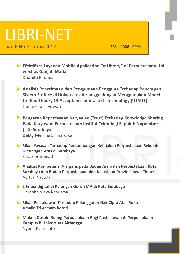ISSN 2302-8777
Vol. 3 / No. 2 / Published : 2014-07
Order : 3, and page :475 - 489
Related with : Scholar Yahoo! Bing
Original Article :
Strategi represif cina dalam menghadapi pengaruh gelombang arab spring tahun 2011 terhadap perkembangan isu demokratisasi di cina
Author :
- Nyoman Triana Dewi S. *1
- Mahasiswa Fakultas Ilmu Sosial dan Ilmu Politik
Abstract :
This study examines the causes of the Chinese government uses repressive strategies in dealing with the issue of the spread of the demands of the politicaldemocratization in China due to echo the revolution brought by the waves of the Arab Spring in the countries of the Middle East since 2011. Researchersused approach to economic development, national integration, and the status quo in researching this study. Through in-depth analysis inferred that themain reason used by the Chinese government uses repressive strategies in dealing with issues of political democratization of the Arab Spring affected.Firstly, China wants to maintain its political and economic stability of the country and survive in the current democratization that swept the world.Second, in order to maintain the condition of their establishment of the communist government power as usual. And last, China wants to prevent thedisintegration in some parts of China who also demanded opening of democracy since the Arab Spring revolution.
Keyword :
China, political democratization, repressive strategy, economical development, national integration,
References :
Evans, Graham dan Newnham, Jeffrey,(1998) Dictionary of International Relations London : Penguin Reference
Archive Article
| Cover Media |
Content |

Volume : 3 / No. : 2 / Pub. : 2014-07 |
- Alasan Indonesia, Malaysia, & Singapura Menjalin Kerjasama Trilateral Patroli Terkoordinasi Malsindo Di Tahun 2004
- Kebijakan Luar Negeri Cina Dalam Mengamankan Pasokan Energinya Terkait Penolakan Warga Arakan Terhadap Kerangka Kerjasama Pembangunan Proyek Pipa Minyak Dan Gas Trans-cina-myanmar
- Strategi Represif Cina Dalam Menghadapi Pengaruh Gelombang Arab Spring Tahun 2011 Terhadap Perkembangan Isu Demokratisasi Di Cina
- Analisis Implementasi Strategi Diplomasi Budaya Populer Jepang Di Indonesia Tahun 2008-2013
- Branding Nonprofit Dalam Kerjasama Unicef Dengan Fc Barcelona Tahun 2006 – 2011
- Dukungan India Terhadap Junta Militer Myanmar (2004-2009): Kerjasama Ekonomi Dan Rivalitas Dengan Cina
- Peran Ucav Dalam Penerapan Strategi Clausewitz Dan War On Terror: Kasus Operasi As Di Wilayah Fata Tahun 2004-2012
- Analisis Mengglobalnya Kegiatan Earth Hour Tahun 2007-2012
- Implementasi Indonesia-japan Economic Partnership Agreement Terhadap Defisitnya Neraca Perdagangan Sektor Non-migas Indonesia-jepang 2008-2012
- Pengaruh Karakter Personal Perdana Menteri Jose Zapatero Terhadap Kebijakan Luar Negeri Spanyol Pada Kasus Gibraltar Tahun 2004-2008
- Faktor Domestik Ethiopia Meratifikasi Nile Basin Cooperative Framework Agreement (cfa) Tentang Manajemen Redistribusi Aliran Sungai Nil Tahun 2013
- Pengaruh Perusahaan Berlian Internasional De Beers Terhadap Kegagalan Proses Demiliterisasi, Demobilisasi, Dan Reintegrasi Unita Dan Mpla Tahun 1992-2002
- Faktor Sosial Dan Ekonomi Sebagai Penyebab Peningkatan Respon Anti-imigran Di Norwegia Tahun 2008-2011
- Strategi Skateistan Dalam Mengatasi Kelemahan Program Sport For Development And Peace (sdp) Di Afghanistan
- Dampak Pasokan Senjata Pada Saf Dan Spla Terhadap Perpanjangan Durasi Konflik Sudan-sudan Selatan 2011-2012
- Analisa Faktor Suriah Di Balik Pemutusan Hubungan Diplomatik Kanada Terhadap Iran Tahun 2012
- Signifikansi Identitas Nasional Dalam Globalisasi: Studi Kasus Olahraga Otomotif Global
- Faktor Pembeda Kemampuan Brazil Dan Indonesia Dalam Menanggulangi Deforestasi Pada Tahun 2001-2012
- Kesepakatan Penyelesaian Sengketa Delimitasi Laut Barents Antara Norwegia Dan Rusia 2010
- Analisa Kebijakan Presiden Abdurrahman Wahid Untuk Membuka Hubungan Diplomatik Dengan Israel Dalam Upaya Peduli Perdamaian Palestina-israel
|














